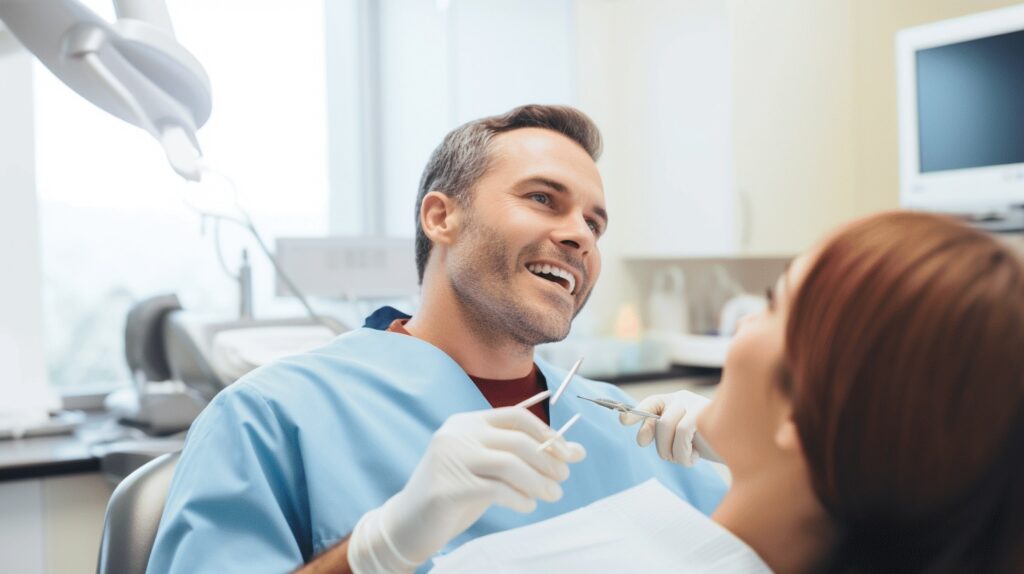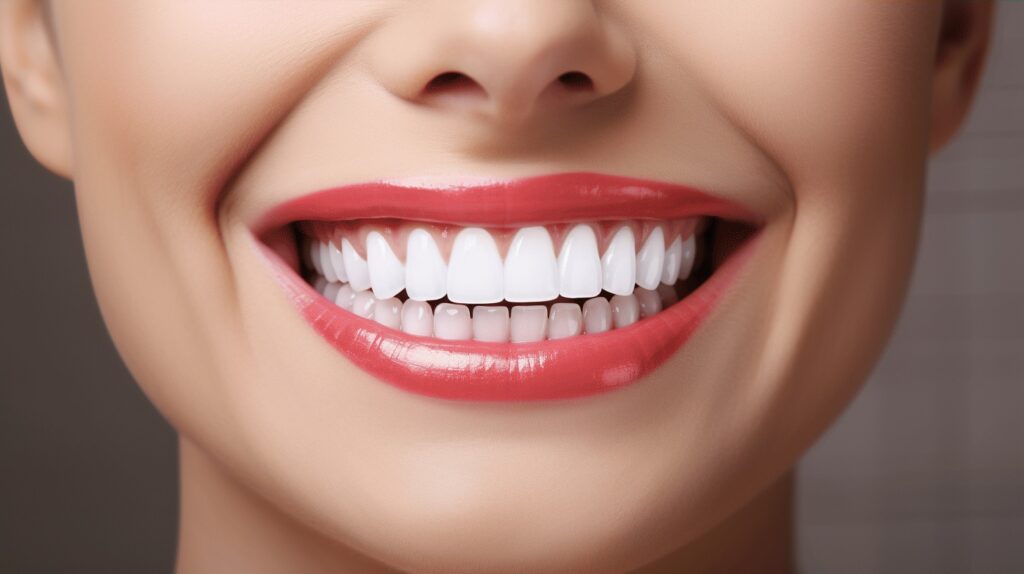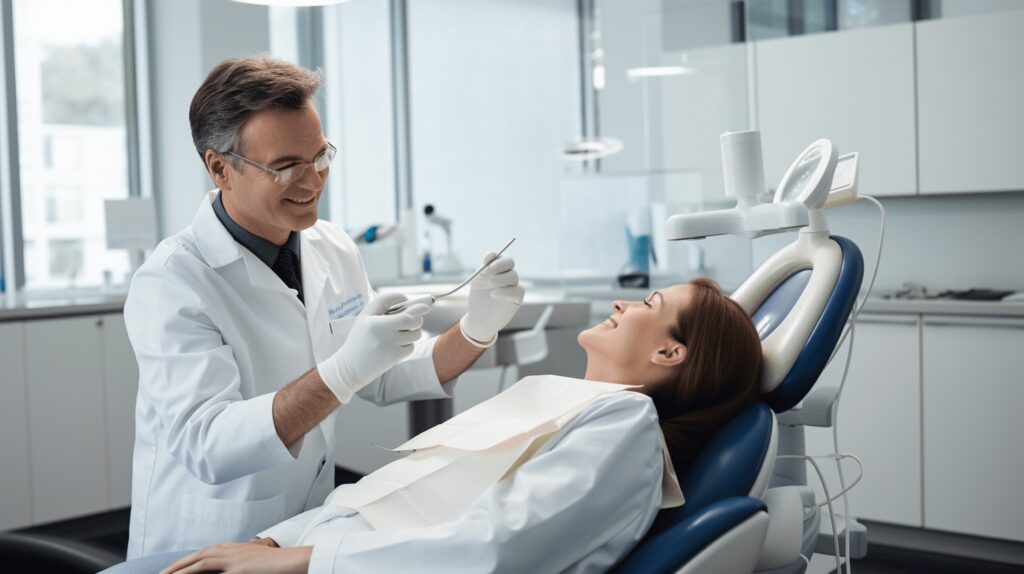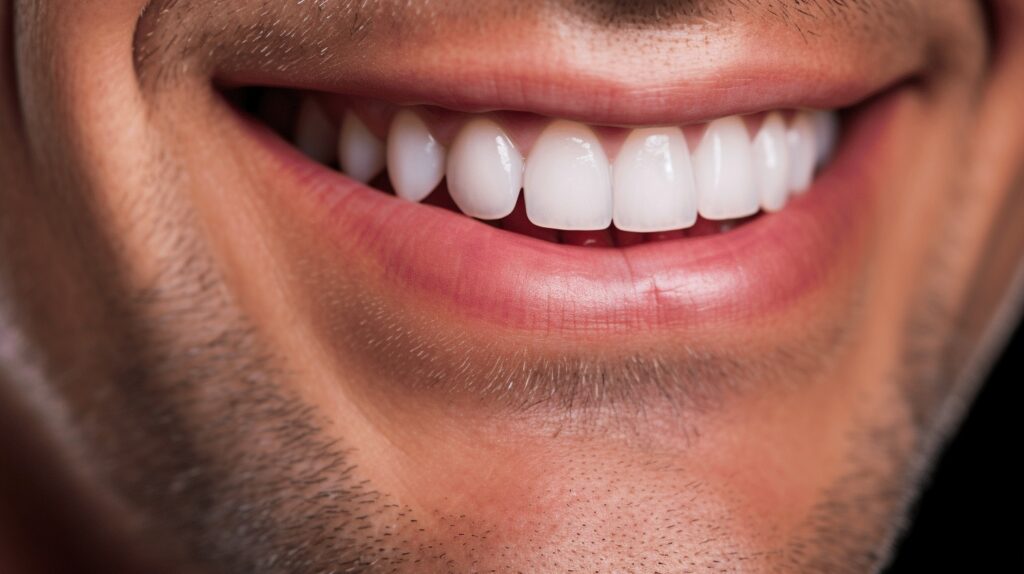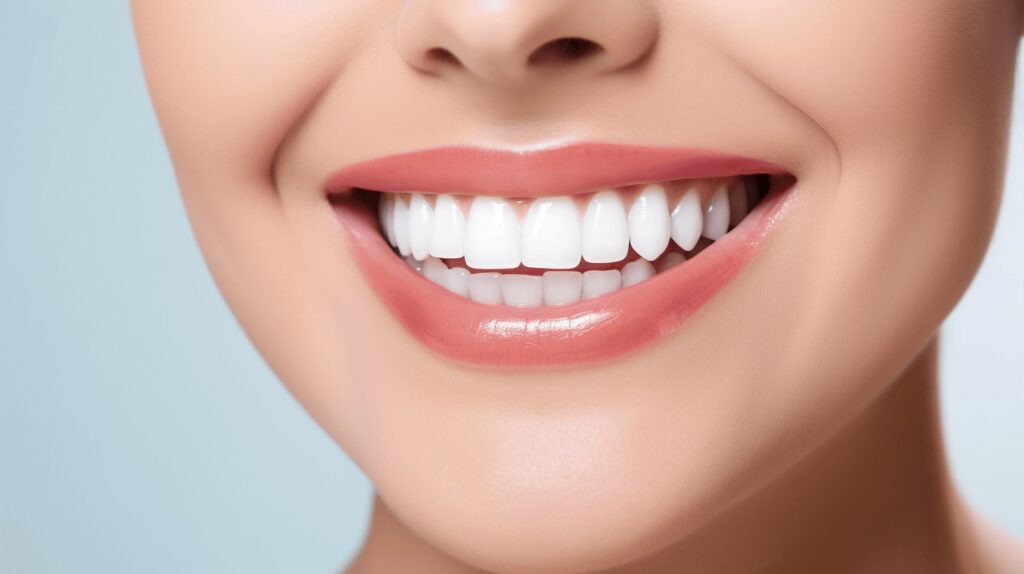Welcome beautiful moms-to-be! Pregnancy is a magical journey. 🤰 It fills your life with immense joy and anticipation. But while you’re dreaming about the sweet cutesy coos and teeny weeny toes, it’s equally important to look after your health, significantly your oral health.
Let’s clear this – a mother’s dental health matters a lot, be it for her own wellbeing or the baby’s. We at Dr. Smile’s Dental Clinic have long advocated for preventative dentistry for expectant mothers. Because as the old adage goes, ‘Prevention is always better than cure’, and amazingly, it applies to your teeth too!😉
This article shares insightful information about the importance of maintaining good oral health during pregnancy. We dive into the prevalence of gingivitis, endorsing the practice of oral prophylaxis, and establishing the direct link between periodontal disease and pregnancy outcomes.
Intriguing, isn’t it? But hold up, ladies… that’s not all. We also touch upon the safety parameters of dental X-rays during pregnancy and the role of dental insurance coverage during this crucial time.
So, buckle up and be ready to know more about how you can protect your pearly whites during pregnancy and ensure a healthy and joyous journey towards motherhood. Let’s smile our way through it! 😄
Table of Contents
Prevalence of Gingivitis in Pregnancy
Welcome, dear readers – expecting moms, health-conscious individuals, and curious friends alike. Today, let’s delve into a health topic that often goes unnoticed during pregnancy 👀. Yes, we’re talking about gingivitis, a common oral ailment. While it might seem harmless, ignoring it could have consequences. So, let’s understand, explore, and be aware.
Gingivitis – a common name in the dental world, and frequently an unwanted guest during pregnancy. You may be surprised to learn that gingivitis is the most common oral disease during pregnancy. As a guideline, if you’re expecting, you should be aware that between 60-75% of pregnant women experience gingivitis. Shocking? It’s true.
But before we get all alarmed, let’s take a moment to understand what gingivitis is. Simplified, it’s an inflammation of the gums caused by bacterial plaque on the tooth surface. It’s characterized by gum redness, swelling, and bleeding. And, unfortunately, it has a knack for being more prevalent during pregnancy due to hormonal changes that make your gums more susceptible to the effects of bacterial plaque.
So, why should you be concerned? Well, research shows that if left untreated, gingivitis can progress to periodontitis, a more serious form of gum disease that can lead to tooth loss 😨. More than that, emerging evidence points towards a potential link between gum disease and adverse pregnancy outcomes, such as premature birth and low birth weight.
Therefore, dear moms-to-be, while you are busy preparing for the arrival of your little one, don’t forget to take care of your oral health as well. Make regular visits to your dentist, brush, floss, and use an antiseptic mouthwash. After all, your well-being is linked to the health of your baby.
Remember, knowledge is power. Now that you are aware of the prevalence of gingivitis during pregnancy, arm yourself with the best oral hygiene habits, prevent complications, and ensure a healthy and happy pregnancy journey. And don’t forget to share this valuable piece of information with other expecting moms. Let’s spread health and happiness together. 😊🤰💕
Importance of Oral Prophylaxis during Pregnancy
Your journey to prenatal care should go beyond the regular doctor visits, prenatal vitamins, and healthy eating. It should also include a trip to the dentist for oral prophylaxis, or what’s more commonly known as a dental cleaning. Let’s face it; dental health often takes the backseat during pregnancy since, understandably, much of the focus shifts to maintaining a healthy pregnancy. However, in an alarming finding, only 46% of pregnant women in the US report having an oral prophylaxis during pregnancy. It’s time to put this topic into the spotlight, ladies! 🚀🔬
Oral Prophylaxis is nothing but a sophisticated term for a professional dental cleaning. It involves the removal of dental plaque and tartar from your teeth to prevent cavities, gingivitis and gum diseases. During pregnancy, hormone changes could create an elevated risk of dental issues such as pregnancy gingivitis and periodontitis. Oral health can directly affect the health of the baby, making it crucial for pregnant women to prioritize dental cleanings.
Here’s why oral prophylaxis during pregnancy should be on your fertility checklist:
- Prevents Pregnancy Gingivitis: Due to hormonal changes during pregnancy, you might experience red and swollen gums that bleed a bit, known as Pregnancy Gingivitis. Regular dental cleanings can help keep this in check.
- Lowers Risk of Preterm Birth: Studies reveal an association between periodontitis, an advanced form of gum disease, and preterm birth or low birth weight. Oral prophylaxis can help rid your mouth of harmful bacteria, decreasing this risk.
- Keeps Cavity-Causing Bacteria in Check: Newborns and infants can be infected by cavity-causing bacteria from their mothers. Regular dental cleanings can reduce the amount of these bacteria that you might pass on to your baby.
Now, it’s not just about understanding the importance but also about action. You shouldn’t wait to schedule your dentist appointment the moment you know you’re expecting. We assure you, your future self and your little one will thank you. A bright, clean smile doesn’t just signify beauty; it also speaks volumes about your health and well-being. So, expectant mothers, gear up, prioritize your oral health, and pass on a radiant smile to your babies! 😁
Dental Insurance Coverage during Pregnancy
Embracing the journey of pregnancy is one of life’s great joys! And while you prepare to welcome your little one, the last thing you would want is having to worry about dental problems.(😟)
About 76% of expecting moms have dental insurance during pregnancy according to the most recent statistics. This tells us that a significant majority of women recognize the need to ensure their dental health during this crucial period.
Whether it’s routine cleaning or more intense procedures, dental insurance can help lighten the financial load and keep potential oral issues at bay.
Why Is Dental Insurance Crucial During Pregnancy?
Your body goes through significant changes during pregnancy, and your oral health is no exception!
- The hormone progesterone can cause swollen, red, tender gums that bleed — a condition known as pregnancy gingivitis.
- Your food cravings might increase the risk of tooth decay.
- Morning sickness can introduce additional acid into your mouth, harming tooth enamel.
Since treatment for these problems can be pricey, especially without insurance, it could add an unnecessary financial burden during a time when you least need it. Having dental insurance coverage during pregnancy mitigates this risk. 😌
What Does Dental Insurance During Pregnancy Cover?
A typical dental insurance plan during pregnancy may cover benefits such as:
- Preventive Care – Regular check-ups, cleanings, and X-rays.
- Basic Procedures – Fillings, extractions, and root canals.
- Major Procedures – Crowns, bridges, dentures, and some orthodontic procedures.
Every insurance plan is different, so it is crucial to review yours carefully. If you’re pregnant without dental coverage, don’t panic! There are plenty of resources and alternatives available to help you maintain that radiant, beautiful smile throughout your pregnancy. 🤰🦷
As responsible dental health advocates, we believe that dental insurance during pregnancy is an essential part of the journey to motherhood. It is vital to keep both your oral health and that of your growing baby in mind. So, remember to flash those pearly whites on your journey to becoming a mom without worrying about the unplanned dental costs. You’ve got it covered, and your smile can stay as radiant as ever! 👩👧👦
Association between Periodontal Disease and Pregnancy Outcomes
Something that’s probably never crossed your mind is the connection between your dental health and your pregnancy. Indeed, fascinating new studies show that there’s a surprising and significant link. Listen up, future moms: your oral hygiene could directly affect not just your health, but the health of your new little bundle of joy as well. 😮
Disconcertingly, periodontal disease, a rather common dental issue, has been increasingly associated with adverse pregnancy outcomes, encompassing conditions like preeclampsia and low birth weight.
So, why’s periodontal disease a concern during pregnancy?
Well, let’s delve into it:
- Periodontal disease is a severe and chronic bacterial infection that affects gums and bones supporting the teeth. 😷
- It’s the top cause of adult tooth loss and impacts nearly half of adults in the United States alone!
- Alarmingly, the presence of periodontal disease can increase the levels of bodily fluids that induce labor.
With that said, we must connect the dots. If periodontal disease induces labor, it could very well lead to premature labor and consequently, to low-birth-weight babies. And that’s not all, the inflammation caused by periodontal disease can alter blood vessels’ functions, possibly triggering preeclampsia.
“The mouth can be a dangerous place. Not because of sharp teeth and biting, but due to what’s lurking on your gums.”
Now, don’t worry, the news isn’t all bad. And no, you’re not doomed if you’ve had a history of dental issues. Though the correlations between periodontal disease and adverse pregnancy outcomes are concerning, prediction isn’t certainty. It’s crucial to maintain vigilant oral hygiene and regular dental check-ups, especially if you’re pregnant or planning on conceiving soon.
Let’s ensure we keep that beautiful pregnancy glow shining bright, by taking care of the radiance of our smiles too! 😁
Maintaining Good Oral Health during Pregnancy
Oral health might not be the first thing that comes to mind when thinking about pregnancy, but it’s more critical than ever during this time. Hormone shifts can lead to an increased risk of dental issues, such as gingivitis or tooth decay, making it vital for expectant mothers to maintain good oral health.
We want to support you in keeping your smile healthy and bright during your pregnancy, so here are some of our top tips:
Routine Dental Visits and Cleanings
Don’t let your dental visits slide simply because you’re pregnant! Regular dental appointments and professional cleanings play a pivotal role in maintaining oral health during pregnancy. These visits can help:
- Catch potential issues before they become serious
- Maintain gum health
- Keep your teeth clean and cavity-free
Remember, any infection in your mouth can potentially affect your developing baby, making these visits even more crucial.
Did you know that gingivitis is especially common during pregnancy? Routine dental visits are an effective way to keep this at bay. 🦷✨
Proper Brushing and Flossing Techniques
Outside of the dentist’s office, there are also daily practices you can follow to keep your oral health in check. Brushing and flossing might feel like second nature, but you want to make sure you’re doing it right.
These tips include:
- Brushing your teeth for at least two minutes at a time, twice a day
- Using a toothpaste with fluoride
- Flossing at least once a day
Don’t forget about your tongue! Include your tongue in your brushing regimen to remove bacteria and keep your breath fresh. And remember, more pressure does not mean more clean. Be gentle to avoid damaging your gums.
Oh, and 🤰 mothers-to-be, if morning sickness has you avoiding brushing your teeth due to nausea, try switching to a bland-tasting toothpaste. It’ll make the process a bit easier on your stomach.
Caring for your oral health is a vital part of self-care during pregnancy. Though it might not seem like a top priority in the whirlwind of doctor’s appointments and baby outfits, a clean mouth contributes to a healthy mum and baby. Now, that’s something to smile about. 😄
Safety of Dental X-rays during Pregnancy
Whether you’re expecting your first baby or you’re a seasoned parent, pregnancy is a time of joy, anticipation, and—let’s admit it—a bit of anxiety. 😳 A flood of questions accompany this beautiful journey, health being a primary concern. However, there’s one question expecting mothers often overlook: Are dental X-rays safe during pregnancy, and should I continue routine teeth check-ups?
Rest easy, moms-to-be. The answer to both queries is a resounding “yes”. 🎉 Dental X-rays, even during pregnancy, are perfectly safe and should not be skipped. Health is the foundation of a happy motherhood, and oral health is an essential part of maintaining overall wellness.
The Safety Aspect
Dental X-rays serve an important purpose, allowing your dentist to scan for potential dental issues that might get overlooked during a standard oral examination. They’re your smile’s insurance policy against unforeseen difficulties, catching tooth decay and gum disease early on.
But what about radiation exposure during pregnancy? You may worry about the potential risks to your developing baby. It’s essential to know that, with proper protection, dental X-rays are safe—even when you’re expecting. They produce a low level of radiation, and with modern technology, the exposure is even lesser than it used to be.
Now here’s the key part: the protective gear. When you go for your X-rays, be vigilant about using a lead apron and a thyroid guard. These forms of protection drastically reduce the radiation your body absorbs, maintaining a safe environment for your growing baby.
To reassure you further, we’ve broken down the safety protocols:
- Using a lead protective apron
- Using a lead thyroid guard
- Using modern, fast-speed X-ray films or digital X-rays to reduce radiation exposure
Maintaining Oral Health During Pregnancy
Interestingly, your oral health has a significant effect on your pregnancy. Hormonal changes during pregnancy can cause dental problems like gum disease and increased tooth decay—as if morning sickness wasn’t enough, right? Regular dental care including routine X-rays can help you stay one step ahead.
Remember, the health and brilliant smile 😁 you maintain today aren’t just for you—your little one benefits too! By taking care of your teeth, you’re setting your child’s primary dental care in motion.
Embrace a confident, radiant smile and good oral health during your pregnancy with routine dental care and X-rays. It’s the best gift 🎁 you can give to yourself and your precious little one.
Remember mamas, your questions and concerns are valid, but don’t let them cloud the joy of your pregnancy. Stay informed, take care of your dental health, and let that authentic mommy glow shine bright!
Importance of Dental Care for Mother and Baby
Caring for those pearly whites has always been crucial, but when you’re expecting a little one, tending to your teeth becomes more critical than ever. First things first, let’s burst this bubble – dental care during pregnancy is not just about avoiding toothache. It’s about nurturing a healthy environment for both you and your baby. This is where we shine the spotlight on the importance of dental health for expectant moms and babies.
During pregnancy, fluctuating hormone levels can make your gums more susceptible to plaque, leading to inflammation and bleeding. This is known as pregnancy gingivitis, a condition that affects most pregnant women to some degree. Left unchecked, it could lead to a more serious gum disease and in some cases, can cause premature birth or low birth weight. 😮 Thus, maintaining good oral hygiene isn’t just beneficial for you, but can also have a direct impact on your baby’s wellbeing.
So, what can you do to ensure optimal dental health during pregnancy? Here are some steps you can follow:
- Regular Dentist Visits: Aim to visit your dentist at least twice during your pregnancy. Routine dental cleanings can help keep your teeth and gums healthy.
- Keep a Check on your Diet: Ensure you are eating nutrient-dense foods that support dental health.
- Maintain Oral Hygiene: Brush twice a day, floss regularly, and include a mouthwash with anti-bacterial properties in your oral care routine.
Dental care doesn’t stop with the arrival of your baby. In fact, it should extend to infant oral care. As soon as a baby’s first tooth appears, usually around six months, start brushing gently with a soft, infant-sized toothbrush and a rice grain-sized amount of fluoride toothpaste. 👶
“The early bird catches the worm, and the toothbrush looking after baby’s first tooth ensures a healthier oral future.”
Creating a habit of dental hygiene for your baby from the get-go is investing in their long-term health. Tooth decay and cavities in babies can not only be painful, but if left untreated, can also affect their growth and development.
There’s never been more of a high time to prioritize dental care than in the phase of pregnancy and early childhood. So, mommies-to-be and new mothers, let’s put that toothbrush to work and provide a solid foundation for our little one’s future smiles. Remember, a healthy mouth for mom means a healthy baby. 😊
Conclusion
Pregnancy is a unique experience, presenting not only joys but also challenges – one of those being dental health concerns. At Wilshire Smile Studio, we believe that maintaining excellent oral health during pregnancy is a priority. Visiting your dentist regularly, maintaining proper oral hygiene with the right brushing and flossing techniques, and understanding the importance of dental care for you and your soon-to-be newborn, are a few ways to ensure this.
Dealing with the prevalence of gingivitis during pregnancy or understanding dental insurance coverage can be overwhelming. You might be wondering about the safety of dental X-rays during pregnancy, or how periodontal disease could possibly influence pregnancy outcomes. But remember: you’re not alone in this journey.
Your dental care is our passion 🦷. We are dedicated to providing you with the knowledge and resources you need for a healthy journey into motherhood. As we wrap up this discussion, remember that preventive dentistry is not just a practice, it is a commitment – to yourself, your health and the health of your growing family.
Interested in learning more, or ready to book your next dental appointment? We at Wilshire Smile Studio are ready to welcome you into our family and provide you the exceptional care you deserve. After all, your smile is our mission. See you soon!
Call us at (323) DEN-TIST (336-8478) or book an appointment online for a free consultation at Wilshire Smile Studio.
Frequently Asked Questions
1. Is it safe to have dental treatment during pregnancy?
Yes, it is safe to have dental treatment during pregnancy. However, it is important to inform your dentist about your pregnancy and any changes in your health. Certain treatments like X-rays and medication may be avoided or modified during pregnancy.
2. Why is it important to maintain good oral health during pregnancy?
Maintaining good oral health during pregnancy is important for both the mother and the baby. Poor oral health has been associated with an increased risk of pregnancy complications such as preterm birth, low birth weight, and gestational diabetes.
3. How can I take care of my oral health during pregnancy?
To take care of your oral health during pregnancy, you should brush your teeth twice a day with fluoride toothpaste, floss daily, eat a balanced diet, limit sugary snacks, and visit your dentist regularly for check-ups and cleanings.
4. Can pregnancy cause dental problems?
Yes, hormonal changes during pregnancy can lead to an increased risk of dental problems such as gum disease, pregnancy gingivitis, and tooth decay. It is crucial to maintain good oral hygiene to prevent and manage these issues.
5. Should I be concerned about morning sickness affecting my oral health?
Morning sickness can expose your teeth to stomach acid, which can erode the enamel and lead to tooth sensitivity and decay. It is recommended to rinse your mouth with water or a fluoride mouthwash after vomiting and wait for at least 30 minutes before brushing your teeth.



